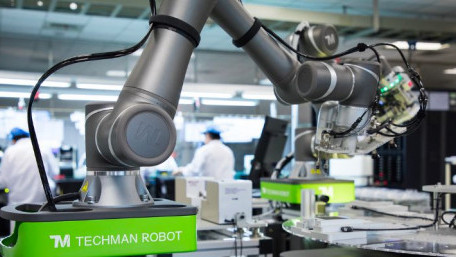
Learn about the common applications, programming procedures, and safety protocols of collaborative robot work cells, which are often simpler and less expensive…
Learn about the common applications, programming procedures, and safety protocols of collaborative robot work cells, which are often simpler and less expensive than industrial robot work cells.
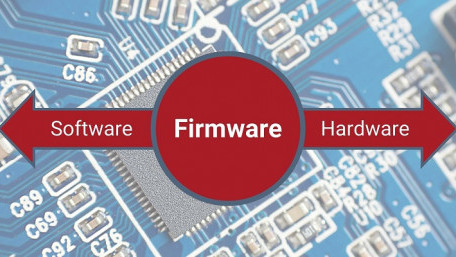
Inside a controller, code is interpreted into the binary signals that influence input and output signals, flags and…
Inside a controller, code is interpreted into the binary signals that influence input and output signals, flags and registers, and even the communication of network signals. This is the job of firmware.
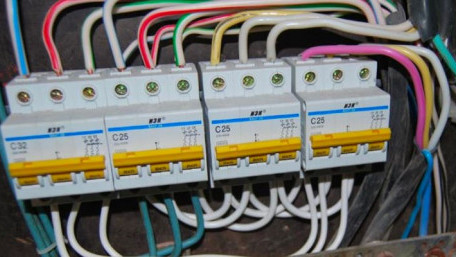
Fuses and breakers are some of the most common safeguards to prevent electrical shock and fires. Learn about these two…
Fuses and breakers are some of the most common safeguards to prevent electrical shock and fires. Learn about these two pieces of industrial equipment and the difference between slow blow and quick blow responses.
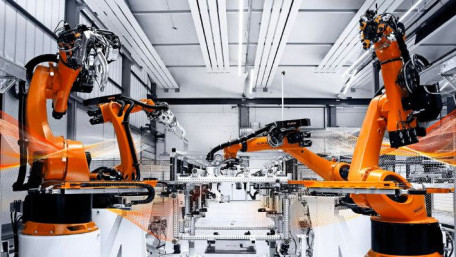
The world of manufacturing is filled with robots, but beginners are still always faced with key questions, starting with…
The world of manufacturing is filled with robots, but beginners are still always faced with key questions, starting with perhaps the most basic: how do you program industrial robots?
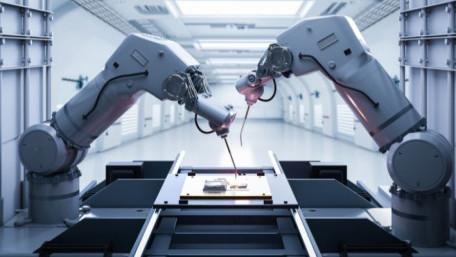
Robot cells make for an efficient automation process, reduce labor costs, and increase worker safety. Learn about the…
Robot cells make for an efficient automation process, reduce labor costs, and increase worker safety. Learn about the common features, components, and safety requirements of industrial robot work cells.
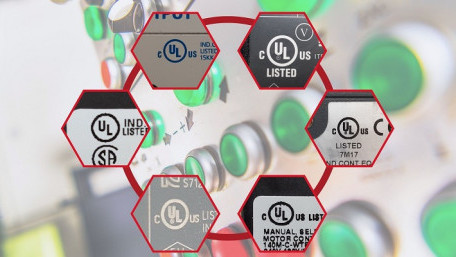
UL Listed devices are certified as safe within North America, specifically, the US. Learn about the importance of UL…
UL Listed devices are certified as safe within North America, specifically, the US. Learn about the importance of UL Certification and the key role it plays in industrial automation.
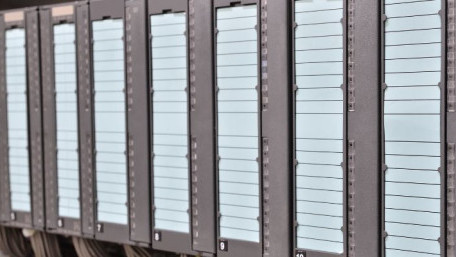
Centralized control systems are often seen as outdated compared to decentralized systems; however, both have their…
Centralized control systems are often seen as outdated compared to decentralized systems; however, both have their advantages and disadvantages when it comes to choosing which one to use in manufacturing.
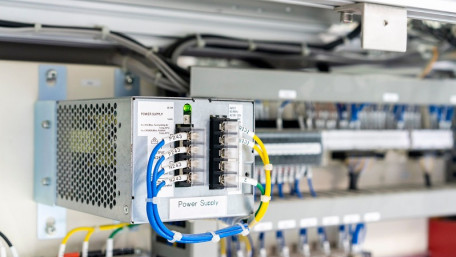
DC voltage systems exist to provide controllers and field devices with stable power, but it is not always clear when…
DC voltage systems exist to provide controllers and field devices with stable power, but it is not always clear when these systems should be bonded with the earth ground of the AC line voltage supply.
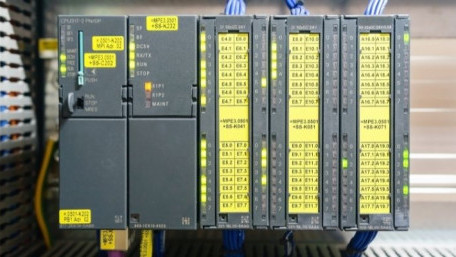
We will show you how to recognize, utilize, and efficiently operate your comparison instructions in…
We will show you how to recognize, utilize, and efficiently operate your comparison instructions in Rockwell Automation’s Studio 5000 and Automation Direct’s Productivity Suite to make your program flow smoothly.
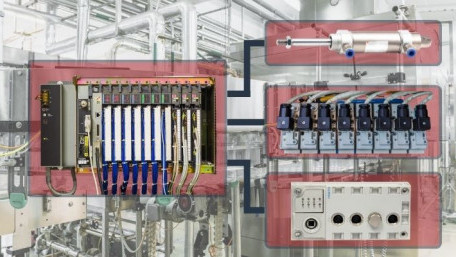
There are many distributed fieldbus capabilities for valve manifolds that can save on network overhead and wiring. In…
There are many distributed fieldbus capabilities for valve manifolds that can save on network overhead and wiring. In this article, we will look at PLC programming of fieldbus manifolds highlighting Festo's CPX layout.
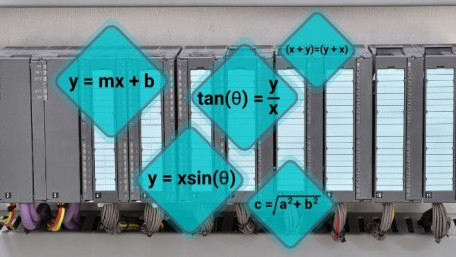
We will show you how to use the basic trigonometry functions to build ladder logic in a PLC, allowing for a clean,…
We will show you how to use the basic trigonometry functions to build ladder logic in a PLC, allowing for a clean, well-organized, and easy-to-use code that allows you and other users to troubleshoot your programs.

We will show you how to use common math functions from two popular PLC programs—Rockwell Automation's Studio 5000 and…
We will show you how to use common math functions from two popular PLC programs—Rockwell Automation's Studio 5000 and Automation Direct Productivity Suite.
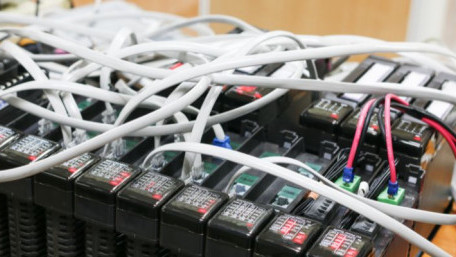
Counting up and down are commonly required functions in PLC lagger logic programs for tracking inventories, placement…
Counting up and down are commonly required functions in PLC lagger logic programs for tracking inventories, placement patterns, and gaining informational insights about machine performance statistics.
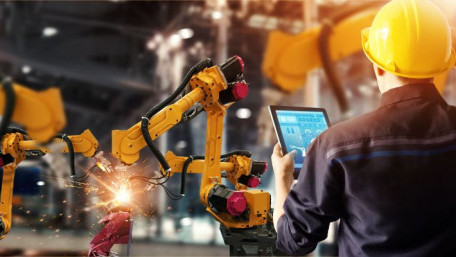
Designing an obsolescence mitigation plan to detect and solve mitigation risks before they occur is key to avoiding…
Designing an obsolescence mitigation plan to detect and solve mitigation risks before they occur is key to avoiding costly downtime and a potential catastrophe in control environments.
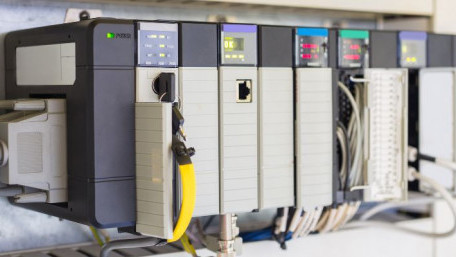
Many PLC commands are well-known to programmers, including contacts, coils, timers, and counters. But a less-common…
Many PLC commands are well-known to programmers, including contacts, coils, timers, and counters. But a less-common instruction is the one-shot, capable of harnessing the incredible processing speeds in a CPU.
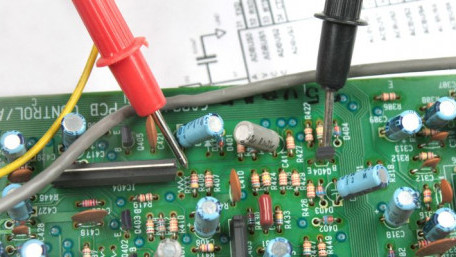
Control engineering is integrally woven together with electricity and electrical circuits. Even so, sometimes the most…
Control engineering is integrally woven together with electricity and electrical circuits. Even so, sometimes the most basic scenarios become misunderstood through lack of training or experience.
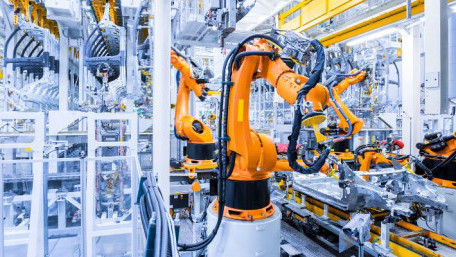
One of the most considerable risks in aging control environments is that eventually, spare parts become obsolete and…
One of the most considerable risks in aging control environments is that eventually, spare parts become obsolete and unavailable, and the lack of an upgrade plan can turn a simple failure into a catastrophe.
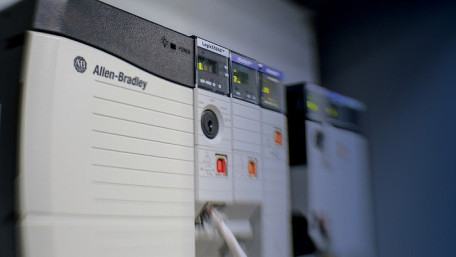
Credited with coining the name ‘PLC’, Allen-Bradley and parent company Rockwell Automation are major players in the…
Credited with coining the name ‘PLC’, Allen-Bradley and parent company Rockwell Automation are major players in the world of control systems. Learn how the hardware platforms have evolved into the familiar modern configurations.
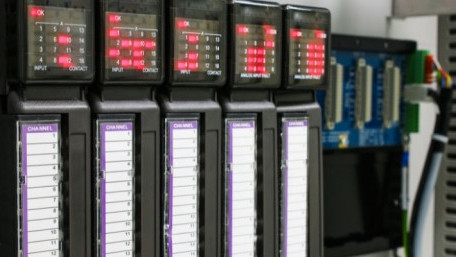
The timer is a fundamental function of ladder logic programming. In this article, we discuss on- and off-delay as well as…
The timer is a fundamental function of ladder logic programming. In this article, we discuss on- and off-delay as well as retentive timers and define the inputs and outputs required to properly use them.
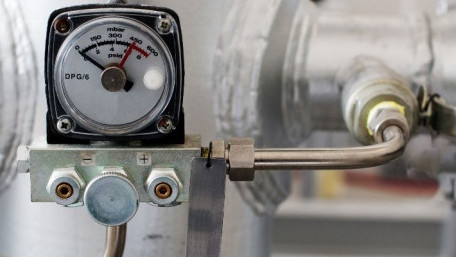
Scaling values has a wide range of applications and helps to match output values to their real-world applications. Most…
Scaling values has a wide range of applications and helps to match output values to their real-world applications. Most scaling is linear, but many of these real-world changes are not quite so simple.
